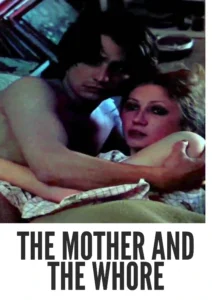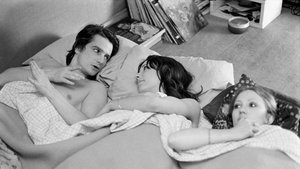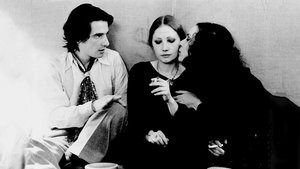Video Sources 0 Views

Synopsis

Dive into the complex and provocative world of The Mother and the Whore (La Maman et la Putain), a landmark film of the French New Wave, now beautifully colorized to enhance its visual and emotional impact. Directed by Jean Eustache and featuring unforgettable performances from Jean-Pierre Léaud and Bernadette Lafont, this film explores themes of love, disillusionment, and existential angst in post-1968 Paris. Perfect for cinephiles and those seeking a profound and challenging cinematic experience, this HD download offers a fresh perspective on a controversial and influential masterpiece.
The Mother and the Whore follows the life of Alexandre (Jean-Pierre Léaud), a young intellectual drifting through life in Paris. Unemployed and supported by his older girlfriend, Marie (Bernadette Lafont), Alexandre spends his days in cafes, engaging in endless conversations about love, sex, and politics.
His life takes a turn when he meets Veronika (Françoise Lebrun), a nurse with whom he begins an affair. Torn between his affection for Marie and his infatuation with Veronika, Alexandre finds himself trapped in a complex love triangle that reflects the shifting social and sexual dynamics of the time.
As the relationships deepen, the characters grapple with their own insecurities and desires, leading to emotional confrontations and moments of profound self-discovery. The film is a raw and unflinching portrayal of a generation searching for meaning in a world marked by uncertainty and change.
The film features a remarkable cast, each delivering powerful and nuanced performances:
-
Jean-Pierre Léaud as Alexandre
-
Bernadette Lafont as Marie
-
Françoise Lebrun as Veronika
The Mother and the Whore is a French New Wave drama that defies easy categorization. It blends elements of romance, social commentary, and existential exploration to create a unique and unforgettable cinematic experience.
Released in 1973, The Mother and the Whore reflects the social and political upheaval that followed the events of May 1968 in France. The film captures the disillusionment and uncertainty that characterized the post-revolutionary period, as young people struggled to find their place in a rapidly changing world. Its frank and often controversial depiction of sex, relationships, and personal identity challenged the conventions of mainstream cinema and established it as a defining work of the era.
This colorized version of The Mother and the Whore has been meticulously restored using advanced digital techniques, enhancing the visual appeal while remaining sensitive to the film’s original aesthetic. The colorization process involved a detailed analysis of the grayscale tones in the original black and white footage, with careful attention paid to assigning appropriate colors to each scene. While the specific software used remains confidential, the methods employed included advanced algorithms for color palette selection, motion compensation, and image enhancement. This painstaking process brings a new dimension to the characters and settings, making the story even more accessible for contemporary audiences. While debates about colorizing classic films continue, this version introduces the film to a broader audience, ensuring its legacy for generations to come.
-
: Jean Eustache
-
: Jean Eustache
-
: Pierre Lhomme, Jacques Renard
-
: Denise de Casabianca
-
: Elite Films, Les Films du Losange
-
: New Yorker Films
-
: 219 minutes
-
: MP4
-
: HD (1080p)
-
: Compatible with most devices, including smartphones, tablets, computers, and smart TVs.
The Mother and the Whore (1973) remains a controversial and highly influential film, celebrated for its unflinching portrayal of love, sex, and personal identity. It is considered a landmark work of the French New Wave, praised for its innovative storytelling and its powerful performances. As a challenging but ultimately rewarding cinematic experience, The Mother and the Whore offers a profound reflection on the complexities of human relationships.
-
: What is The Mother and the Whore about?
-
A: The Mother and the Whore is a drama about a young man caught in a complex love triangle in post-1968 Paris.
-
-
: Is The Mother and the Whore (1973) a well-known film?
-
A: The Mother and the Whore is a highly regarded film of the French New Wave, known for its controversial themes and innovative style.
-
-
: Is this version of The Mother and the Whore colorized?
-
A: Yes, this version has been professionally colorized to enhance the viewing experience.
-
-
: What makes The Mother and the Whore interesting for classic film fans?
-
A: The Mother and the Whore offers a unique and challenging perspective on love, sex, and personal identity, making it a must-see for fans of French cinema.
-
-
: What is the download format?
-
A: The download format is MP4, which is compatible with most devices.
-
-
: What resolution is the download?
-
A: The resolution is HD (1080p), providing a high-quality viewing experience.
-
Watch The Mother and the Whore Today!










